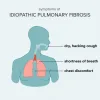Can Fatty Liver Cause High Blood Pressure?
High blood pressure, also known as hypertension, is a common health condition that affects a significant number of people in India. It is characterized by elevated blood pressure levels, which can lead to serious health complications if left untreated. One factor that has been linked to high blood pressure is fatty liver disease. In this article, we will explore the relationship between fatty liver and high blood pressure, and understand how this condition can impact your overall health.
Understanding Fatty Liver Disease
Fatty liver disease, also known as hepatic steatosis, is a condition characterized by the accumulation of fat in the liver. This can occur due to various factors, including excessive alcohol consumption, obesity, insulin resistance, and certain medications. When the liver becomes infiltrated with fat, it can impair its normal functions and lead to inflammation and scarring.
The Link Between Fatty Liver and High Blood Pressure
Research studies have shown a strong connection between fatty liver disease and high blood pressure. It is believed that the accumulation of fat in the liver can lead to insulin resistance and an increase in the production of certain hormones and inflammatory substances. These factors can disrupt the normal regulation of blood pressure and contribute to the development of hypertension.
How Fatty Liver Contributes to High Blood Pressure
There are several mechanisms through which fatty liver disease can contribute to high blood pressure:
- Insulin Resistance: Fatty liver disease is often associated with insulin resistance, a condition in which the body’s cells become less responsive to the effects of insulin. Insulin resistance can lead to an increase in the production of insulin, which can raise blood pressure levels.
- Inflammation: The accumulation of fat in the liver can trigger an inflammatory response, leading to the release of inflammatory substances in the body. These substances can impair blood vessel function and contribute to elevated blood pressure.
- Hormonal Imbalance: Fatty liver disease can disrupt the balance of hormones involved in blood pressure regulation, such as aldosterone and angiotensin II. Imbalances in these hormones can cause blood vessels to constrict, leading to an increase in blood pressure.
- Obesity and Metabolic Syndrome: Fatty liver disease is closely associated with obesity and metabolic syndrome, both of which are risk factors for high blood pressure. These conditions can further contribute to the development of hypertension.
The Impact on Overall Health
Fatty liver disease and high blood pressure are both serious health conditions that can have a significant impact on your overall well-being. If left untreated, they can increase the risk of developing more severe complications, such as liver cirrhosis, cardiovascular disease, stroke, and kidney problems. It is crucial to address both conditions to protect your health and reduce the risk of complications.
Managing Fatty Liver and High Blood Pressure
If you have fatty liver disease and high blood pressure, it is essential to take proactive steps to manage both conditions. Here are some strategies that can help:
- Maintain a healthy weight: Losing excess weight can improve insulin sensitivity, reduce inflammation, and lower blood pressure levels. Aim for a well-balanced diet that is rich in fruits, vegetables, whole grains, lean proteins, and healthy fats.
- Exercise regularly: Engaging in regular physical activity can help improve insulin sensitivity, promote weight loss, and reduce blood pressure levels. Include a mix of cardiovascular exercises, strength training, and flexibility exercises in your routine.
- Limit alcohol consumption: If alcohol is a contributing factor to your fatty liver disease, it is essential to reduce or eliminate your alcohol intake. Excessive alcohol consumption can worsen liver inflammation and increase blood pressure levels.
- Manage stress: Chronic stress can contribute to high blood pressure levels. Find healthy ways to manage stress, such as practicing relaxation techniques, engaging in hobbies, and seeking social support.
- Follow medical advice: Consult with your healthcare provider for personalized recommendations and treatment options. They may prescribe medications to control your blood pressure and help manage your fatty liver disease.
Introducing Fitpaa: Your Health and Fitness Companion
If you are looking for comprehensive support in managing your health and fitness goals, Fitpaa is here to help. Fitpaa is an AI-driven metabolism monitoring and management technology that aims to help individuals achieve their health and fitness goals.
By taking the Fitpaa Metabolism Assessment, you can identify the root cause of your health conditions and gain insights into your metabolism. Fitpaa then provides a personalized Fitpaa Capsule that includes medical therapy, exercise therapy, nutrition therapy, and cognitive behavior therapy to optimize your metabolism and help you achieve your goals.
With the Fitpaa mobile app, you can easily follow your Fitpaa Capsule, track your progress, and access a wealth of resources to support your health and fitness journey. Fitpaa’s real-time guidance technology incorporates habit-building techniques and timely nudging to keep you motivated and on track.
If you are committed to achieving your health and fitness goals, consider downloading the Fitpaa app today. Your well-being is Fitpaa’s mission, and with their guaranteed results and personalized approach, you can take charge of your health and transform your life.
Remember, taking care of your health is crucial, and addressing conditions like fatty liver disease and high blood pressure is a step towards a healthier and happier future.









